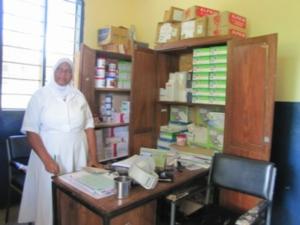WHO improves district health service delivery through the Peer Learning District Initiative
The Peer Learning District Initiative
The Peer Learning District Initiative was born following concerns raised by stakeholders about the level of performance of district health systems in Tanzania. The idea is for districts that are lagging behind to learn from districts that have made progress in improving health service provision.
“The initiative aims to demonstrate that with good management and efficient use of existing resources, it is possible to get better health outcomes”, says Dr. Rufaro Chatora, the WHO Representative in Tanzania. The initiative is currently being implemented in 17 selected districts in collaboration with the Ministry of Health and Social Welfare (MOHSW) and Prime Minister’s Office-Regional Administration and Local Government (PMORALG).
WHO Response
WHO is working closely with four out of the 17 selected Districts. Since the launch of the initiative, WHO has conducted several field visits to the four districts for supportive supervision including provision of working tools, procurement of medical equipment, solar power installation, and provision of funding to the regional and district health teams to enhance supportive supervision within their region and districts.
Improvement in the management of medicines
“It is possible to have no medicines stock outs. During our supervision visits to the health facilities we compare medicines supplied against prescriptions. This helps to reduce misuse of medicines and ensure correct medicines are prescribed to correct diagnosis” says Dr. Dorothy Gwajima, RMO Singida sharing the best practice during the Annual Conference of Regional and District Medical Officers.
“With support from WHO, the regional and district health teams have been able to reinforce the value of the visits to health facilities to mentor the health care providers. As a result of improved supportive supervision, we noted during our visits tremendous improvement in the availability of medicines and medical supplies in all health facilities in Singida. ” explains Mr. Maximillian Mapunda, WHO staff.
“Because there are no drug shortages, more people are seeking health care services and are willing to contribute to the health care costs” he adds.
Improvement in health service delivery
Gwata Dispensary which serves about 10,000 people is located about 100 kilometers away from the Kibaha District Headquarters where electric power is readily available. WHO recently supported solar power installation in the health facility to improve health care services.
Dr. Victorina, District Medical Officer in Kibaha District explains, “The solar power installed in the health facilities has improved health service delivery. The health workers no longer use torches to provide services especially for patients who come at night. Solar power has also improved communication with other health facilities as the health workers can use the power to charge their mobile phones. Overall, community members and health workers are pleased with the initiative”.



